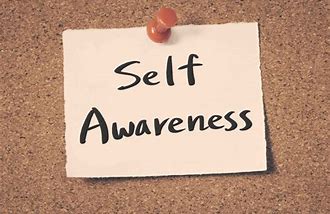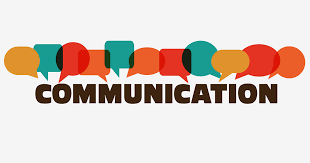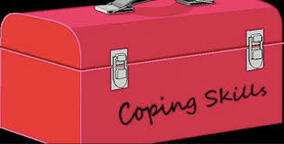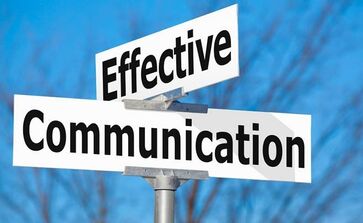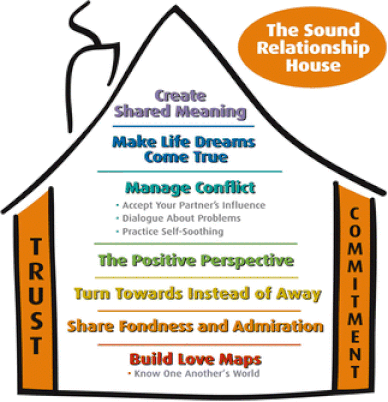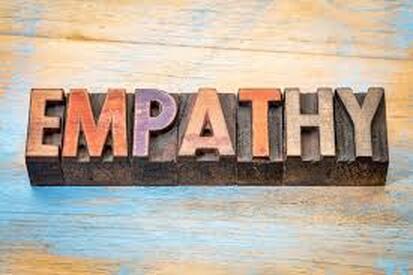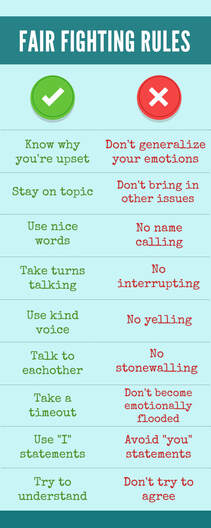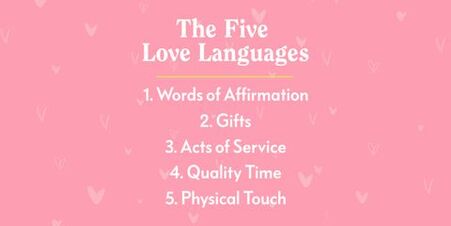SERVICES OFFERED
INDIVIDUAL COUNSELING
One-On-One Talk Therapy
Going to counseling does not mean that you are weak, flawed or crazy. The truth is that most people in therapy are everyday ordinary people dealing with everyday ordinary issues such as adjusting to life changes, dealing with grief, improving their relationships, and trying to become better people by dealing with unresolved issues. In other words, the majority of people in counseling do not have a diagnosable mental health condition.
Making the decision to go to counseling is a sign of emotional maturity, an indication that a person can accept that he or she needs the help or guidance of another and is willing to do what is necessary to take care of himself/herself.
Individual counseling is helpful for a variety of reasons, such as increasing an individual’s self-awareness, encouraging self-exploration, identifying boundaries, enhancing communication skills and improving the use of healthy coping skills just to name a few.
Going to counseling does not mean that you are weak, flawed or crazy. The truth is that most people in therapy are everyday ordinary people dealing with everyday ordinary issues such as adjusting to life changes, dealing with grief, improving their relationships, and trying to become better people by dealing with unresolved issues. In other words, the majority of people in counseling do not have a diagnosable mental health condition.
Making the decision to go to counseling is a sign of emotional maturity, an indication that a person can accept that he or she needs the help or guidance of another and is willing to do what is necessary to take care of himself/herself.
Individual counseling is helpful for a variety of reasons, such as increasing an individual’s self-awareness, encouraging self-exploration, identifying boundaries, enhancing communication skills and improving the use of healthy coping skills just to name a few.
|
Often encourage individuals to reflect and delve into their experiences. Mindfulness is a widely used tool used in counseling to increase an individual’s ability to be present in the here and now. It urges individuals to consider the thoughts, feelings, and sensations occurring in the session. This type of practice leads to self-awareness of the human experience. What is going on inside me–right now?
|
Who am I? What are my beliefs and values? What makes life meaningful for me? Who are the individuals in my support network? These are all questions counseling puts at the forefront of an individual’s mind.
|
|
Boundaries are the physical and emotional limitations that help to differentiate the desires, needs, and preferences of one person from another. The most important aspect of establishing boundaries is recognizing where you need them.
|
Counseling tends to improve communication skills, such as those pertaining to assertiveness, emotional intelligence, empathy, active listening, confidence, and respect. Assertiveness, which involves standing up for one’s own needs while also respecting the needs of others, is crucial to.
|
Encourages individuals to use coping skills related to the individual’s thought patterns. Individuals can reframe thoughts and consider alternative perspectives.
|
Whether you're coping with grief or psychological trauma, handling depression or career dissatisfaction, or simply seeking to improve your general outlook, individual counseling can provide some form of healing.
RELATIONSHIP/COUPLES COUNSELING
Relationship/Couples therapy is a type of counseling that helps couples' gain insight into their relationship, resolve conflict, and improve relationship satisfaction using a variety of skills and techniques geared toward couples.
John Gottman’s research revealed that happy couples apparently know how to handle their disagreements because of a foundation of affection and friendship. Unhappy couples do not have this skill set.
Generally, relationship researchers suggest that the goal of couples’ therapy should be to change the patterns of interaction, emotional connection, and communication between the partners. If your marriage is having problems, do not wait too long to seek help. Couples counseling can be very effective, especially if couples seek it out sooner rather than later.
John Gottman’s research revealed that happy couples apparently know how to handle their disagreements because of a foundation of affection and friendship. Unhappy couples do not have this skill set.
Generally, relationship researchers suggest that the goal of couples’ therapy should be to change the patterns of interaction, emotional connection, and communication between the partners. If your marriage is having problems, do not wait too long to seek help. Couples counseling can be very effective, especially if couples seek it out sooner rather than later.
|
Conflict in a relationship is virtually inevitable. In itself, conflict isn’t a problem; how it’s handled, however, can bring people together or tear them apart.
Most people have never learned how to communicate. By developing your communication skills, you and your partner will be able to establish and preserve a loving, respectful relationship between two people who love each other. |
Dr. John Gottman introduced the concept that a foundationally secure partnership is like a house. It has weight-bearing walls and levels that each person builds upon to create a sturdy bond. He called this structure the Sound Relationship House, and for more than 20 years, it’s given countless couples the tools they need to have happy healthy relationships.
|
|
Feeling empathy for another person means putting yourself in their shoes. It is the ability to imagine what someone else is thinking and feeling. Empathy means caring as much about your partner's well-being as you care about your own, and it can make the difference between a healthy relationship and an unhealthy one.
|
The Fair Fighting Rules is a respectful, structured way of confronting each other on issues that are causing open or hidden conflict. It is a set of ground rules for handling and resolving the differences of opinion that inevitably occur between two people who love each other.
|
|
Learn the love language of your partner. According to Dr. Gary Chapman, author of The 5 Love Languages, there are five ways to “speak” and understand emotional love.
It will take practice and patience to put those expressions of love into action, but the end result—feeling loved and secure in your relationship—is worth the effort. |
A first step toward reconnecting with your partner is to open up to each other and to be honest with yourself. As a couple, you can use these insights to forge a deeper connection based on mutual understanding.
|
COUNSELING + ONE
"I want to be your favorite hello and your hardest goodbye"
Different circumstances will dictate who should attend your therapy session. There may be times when Individual clients need to bring in their partner or significant other into the session. This occurs when it is in the client's best interest or at the recommendation of the therapist. Sometimes it is best if the other person joins in for therapy when the client needs to improve upon couple skills and be able to demonstrate/practice in session; or to have a difficult conversation with his or her partner.
Regardless if you are dating or in a long term committed relationship, many issues can arise when the health of the relationship starts to suffer. Maybe you are struggling with communication issues, feeling disconnected, or misunderstood? Bringing your partner into the session to work together on skill building can improve your communication, help you better understand each other, and become more connected.
Clients will be limited in these sessions. If there is an indication for more work to be done the client will be referred to couple's therapy.
Regardless if you are dating or in a long term committed relationship, many issues can arise when the health of the relationship starts to suffer. Maybe you are struggling with communication issues, feeling disconnected, or misunderstood? Bringing your partner into the session to work together on skill building can improve your communication, help you better understand each other, and become more connected.
Clients will be limited in these sessions. If there is an indication for more work to be done the client will be referred to couple's therapy.
Why you should go to therapy
|
When is it’s time to seek therapy
|
When you are struggling to gain insight into what’s ailing you. You have trouble getting clear on what it is that you want. Seeking therapy can help you figure out what is in your best interest; and then it can help you move forward in that direction.
|
|
You are feeling significant distress
|
This usually means that most things in your life are not working. You can’t shift the emotional weight off on you and you may start to suffer from trouble sleep, can’t concentrate, or having issues at work. You may become anxious and/or depressed which can cause greater distress.
|
|
You tried everything
|
From self-help to books to journaling and beyond but nothing has worked to alleviate feelings of distress or discontentment. You can often get stuck when you know “intellectually” what to do but not know "emotionally" how to do it - to decrease what is causing you distress.
|
|
Everybody is tired of listening to you
|
Often time friends and family mean well by trying to make the decisions for you because they are honestly tired of talking about the same issues over and over. Keep your support system but it may be time for you to go to therapy where you can figure out on your own what is best for you.
|
|
You are grieving a loss that has become overwhelming
|
Grief is a common experience of all humankind. Whether it is a love one, a job, or an unresolved loss from childhood; unresolved grief can cause decreased concentration, numbness, disrupted sleep, and a range of negative thoughts and feelings. Grief therapy helps to process the loss and move through the grief process in a healthy way.
|
|
Other reasons to go to therapy
|
You have a history of trauma such as physical, emotional, or sexual abuse that causes you distress. Trauma can leave you struggling with upsetting emotions, memories, and anxiety that won’t go away. It can also leave you feeling numb, disconnected, and unable to trust other people. It is important that you have someone to share your feelings and listens without judgement.
|
Some benefits of therapy
|
|
If you’re willing to do the work, therapy can be rewarding. It’s a safe, judgment-free space where you can share anything with someone who is there to help you.
Please use this form to contact me for questions, or inquiries. You are encouraged to limit sensitive information when submitting this form due to electronic delivery of personal information can never guarantee confidentiality. Submission of this form does not constitute treatment or counseling relationship. All calls, emails, or requests will be answered within 48 hours during normal business operation. I look forward to speaking with you.
Office Information:
Wishing Well Relationship Center, LLC
4301 Darrow Rd., Suite 1600B, Stow, OH 44224
Phone: 330-414-8586
Email: [email protected]
Wishing Well Relationship Center, LLC
4301 Darrow Rd., Suite 1600B, Stow, OH 44224
Phone: 330-414-8586
Email: [email protected]
